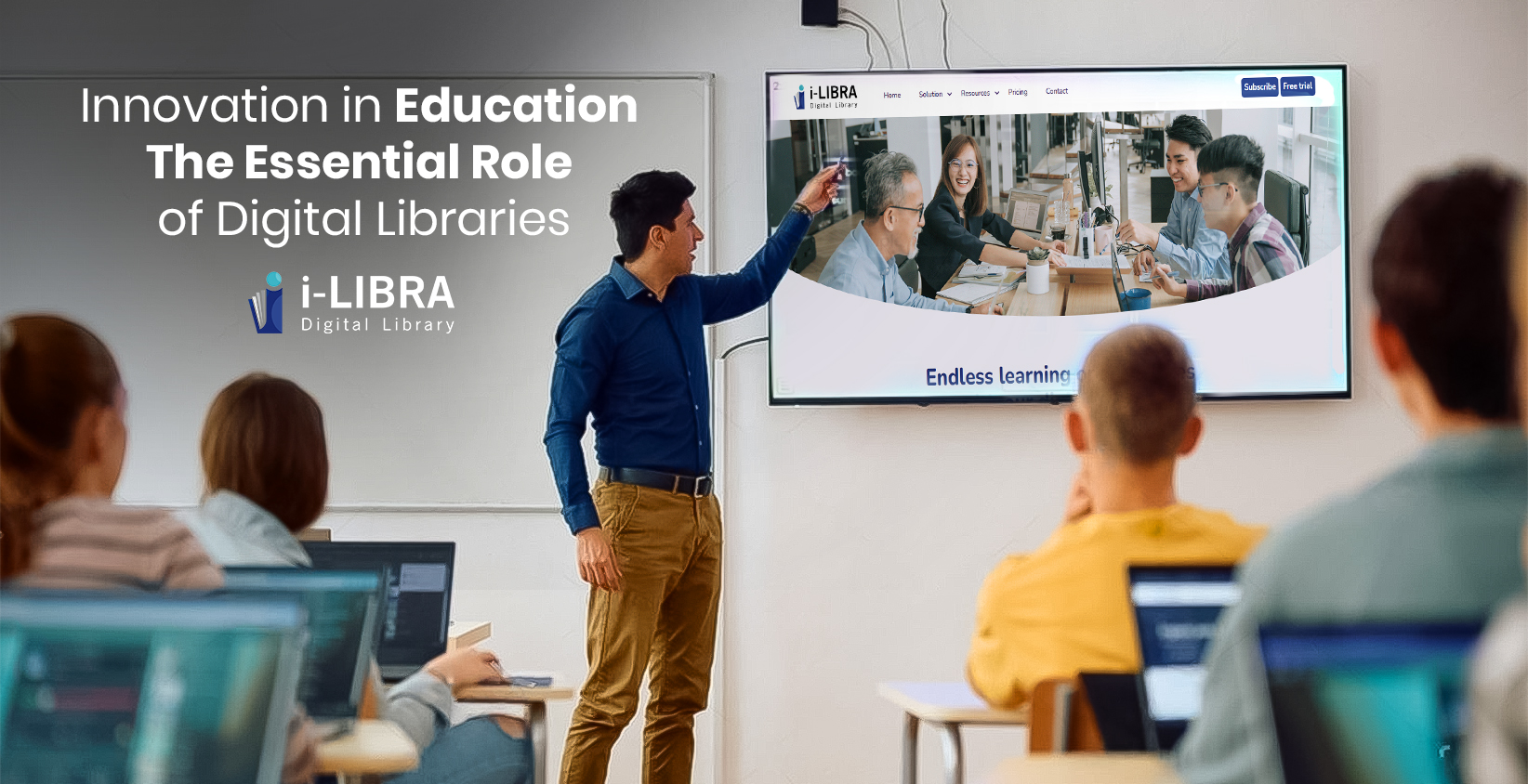
Innovation in Education: The Essential Role of Digital Libraries
Digital libraries play a crucial role in education by providing unprecedented access to information and transforming the learning experience. These online repositories are not just an alternative to traditional libraries; they are revolutionising the way students and educators interact with information. Here's a look at the essential role of digital libraries in modern education.
Accessibility and Inclusivity
Digital libraries democratize access to information. For example, a student in a rural village can access the same resources as a student in a metropolitan city through digital libraries. This is particularly beneficial for students in remote areas or those who cannot afford physical textbooks and resources. Digital libraries level the playing field, ensuring that all students, regardless of their location or economic background, have access to the same high-quality educational materials.
Expansive Resources
The sheer volume and variety of resources available in digital libraries far exceed what any physical library can offer. Digital libraries host a vast array of books, journals, research papers, multimedia content, and more. This extensive collection supports a wide range of academic disciplines and caters to diverse learning preferences. Students and educators can find resources that are up-to-date, diverse, and often interactive, enhancing the learning experience.
Cost-Effectiveness
Maintaining a digital library is often more cost-effective than maintaining a physical library. By eliminating expenses related to building maintenance, transportation, and paper waste, digital libraries offer substantial cost savings compared to traditional libraries. For educational institutions, this means more resources can be allocated to other critical areas, such as research and development. Additionally, students save money on textbooks and other learning materials, which can be prohibitively expensive.
Support for Lifelong Learning
Digital libraries are not confined to the academic calendar. They support lifelong learning by providing access to a wealth of information that individuals can tap into at any stage of their lives. Whether it's for professional development, personal interest, or continuing education, digital libraries offer resources that cater to learners of all ages and stages.
Environmental Impact
Digital libraries also contribute to environmental sustainability. By reducing the need for printed books and physical infrastructure, they help lower the carbon footprint associated with traditional libraries. This shift towards digital resources supports broader environmental goals and promotes sustainable practices within educational institutions.
Conclusion
The essential role of digital libraries in education cannot be overstated. Digital libraries offer unparalleled access to information, cater to diverse learning needs, and cultivate a culture of collaboration and lifelong learning in education. As education continues to evolve in the digital age, digital libraries will remain at the forefront, driving innovation and ensuring that knowledge is accessible to all. Embracing this change is crucial for educators, students, and institutions committed to advancing learning and teaching in this era.